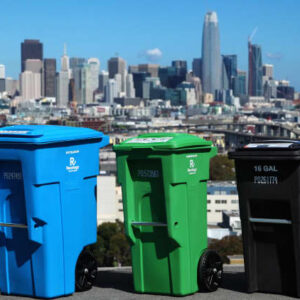Solid waste management in India is a crucial aspect of environmental sustainability and public health. With rapid urbanization and population growth, the country generates millions of tons of waste annually, necessitating efficient disposal and recycling mechanisms.
1. Overview of Solid Waste in India
India produces approximately 62 million tons of municipal solid waste every year, with only 43 million tons collected and less than 30% properly processed. The rest ends up in landfills or open dumps, causing severe environmental hazards.
2. Types of Solid Waste in India
Municipal Solid Waste (MSW) – Household and commercial waste, including food scraps, plastics, paper, and packaging.
Industrial Waste – Byproducts from factories, manufacturing units, and construction sites.
Biomedical Waste – Medical waste from hospitals and clinics, such as syringes, gloves, and pharmaceutical residues.
Electronic Waste (E-Waste) – Discarded electronic devices like computers, mobile phones, and batteries.
Hazardous Waste – Toxic substances from chemical plants, oil refineries, and other industries.
3. Solid Waste Management Methods in India
A. Waste Generation & Segregation
Households and businesses generate waste, which must be segregated into biodegradable, non-biodegradable, and hazardous categories.
The government has introduced waste segregation at the source to improve waste processing efficiency.
B. Collection & Transportation
Municipal Corporations and Private Companies like Wastix handle waste collection.
Waste is transported using garbage trucks, compactors, and waste-collection vehicles to processing centers.
C. Processing & Recycling
Composting: Organic waste is converted into compost for agriculture.
Recycling: Paper, plastic, glass, and metals are reused to reduce waste.
Waste-to-Energy (WTE): Non-recyclable waste is converted into energy through incineration or biogas production.
D. Disposal of Residual Waste
Landfills: Only non-recyclable and non-biodegradable waste is disposed of in regulated landfills.
Incineration: Hazardous and medical waste is burned at high temperatures to prevent contamination.
4. Challenges in Solid Waste Management in India
Lack of Proper Waste Segregation – Mixed waste makes recycling inefficient.
Overloaded Landfills – Most waste is dumped in landfills, leading to pollution and groundwater contamination.
Limited Recycling Infrastructure – India’s recycling industry lacks formal organization and efficiency.
Low Public Awareness – Many people do not follow waste disposal guidelines.
5. Government Initiatives for Solid Waste Management
Swachh Bharat Mission (SBM) – Aims to improve waste collection, segregation, and processing.
Plastic Waste Management Rules – Mandates proper handling of plastic waste to reduce environmental damage.
Extended Producer Responsibility (EPR) – Requires companies to manage the disposal of their products’ packaging waste.
6. How Wastix is Transforming Solid Waste Management in India
Wastix is playing a key role in modernizing waste collection and disposal through:
Door-to-door waste collection services.
Encouraging waste segregation at the source.
Partnering with waste-to-energy plants for eco-friendly waste disposal.
Providing a digital platform for easy waste pickup bookings.
7. Conclusion
Solid waste management in India is a growing concern that requires collective efforts from government agencies, private companies, and citizens. With companies like Wastix, waste collection and disposal are becoming more efficient and sustainable. Join the movement by booking a waste collection service today!
For more details, visit Wastix Website and experience hassle-free waste disposal!
gapsits
Related Posts
- 11 months ago
- 11 months ago
- 11 months ago
- 11 months ago




